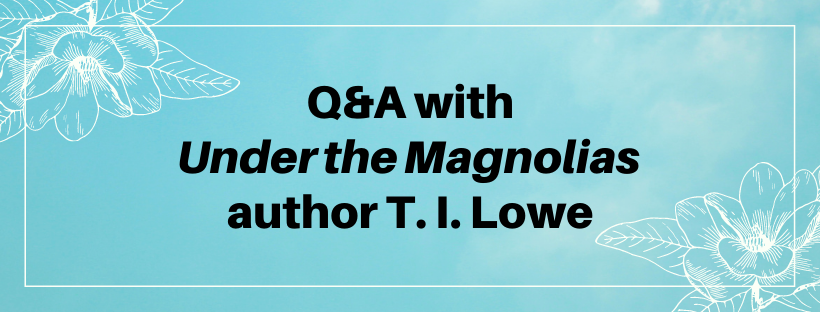
The new Southern fiction novel Under the Magnolias by T. I. Lowe tells the story of Austin Foster, a young woman trying to take care of her family and keep family secrets from seeing the light of day on her family’s South Carolina tobacco farm. In the following Q&A with the author, discover what she hopes readers will take away from the novel and why she’s said this is the most important book she’s written to date.
Q. Under the Magnolias is different from your usual romance novels. What compelled you to deviate from your usual subject matter in this book? How was your writing process different?
A. I always write what I’m led to, and I really never want to limit my stories to a certain genre. With romance, there’s typically a loose formula to follow—boy meets girl, they fall in love, something gets in their way, they overcome it for their happily ever after. But with this book, I just wrote it like no one was looking. I wasn’t even sure where it would end up until I reached the ending. It challenged me as a writer and I loved it!
Q. You’ve said that this book is the most important book you’ve written to date. Why?
A. The subject matter of this book, even though it’s fiction set in the eighties, is so relevant today. Everyone hurts. Everyone struggles. And everyone hides their truths to some degree. I was led to write this book in a way that I hope readers will realize it’s not so healthy to hide, that it’s okay to seek help no matter what they are going through.
Q. You used to work on a tobacco farm. What made you choose this setting for the book? How did you draw from personal experience to create the setting?
A. Working tobacco was my first job and my hardest job. This job taught me that everyone has to do their part. It cannot be put on the shoulders of one person. It’s quite symbolic to the story. Austin tried taking care of her father and siblings all on her own, but the burden was too heavy and came close to ruining them until the community stepped up to take a part in helping.
Q. This book is very raw and real, as told from Austin Foster’s point of view. Did you draw from personal experience in writing her character?
A. Austin and I both lost our mothers, so I shared in her grief. And we both had a parent who was sick and we felt helpless when we realized we couldn’t fix it. I drew many parallels with my mother’s battle with cancer and Austin’s father’s battle with mental illness. Both illnesses need treatment and can be life-threatening when undiagnosed. I also think it’s important to point out that both patients are the main victims of their disease, but their loved ones endure suffering as well.
Q. Chances are readers are going to have a love/hate relationship with Vance Cumberland. He’s different from the male love interests we’ve seen in your other books. What do you love about Vance? What irks you about Vance?
A. Vance is different from most of my male leads because we meet him in the beginning as a privileged kid. Just as we go on the coming-of-age journey with Austin, we get to do the same with Vance. That boy had a lot of growing up to do. I love his determination, but he irked me when he succumbed to those socially labeled boxes in his younger years. He eventually gets it right, and I think he’s pretty swoon-worthy at times.
Q. What do you hope your readers walk away with when they’ve turned the last page of this book?
A. My hope is that they say, “Dang, that girl can write!” Ha! Just kidding. Kinda . . . No, seriously, I want them to get to the end of this book and find their own sense of freedom. To bravely go out and live without putting on airs. To exercise their compassion and empathy muscles more.


